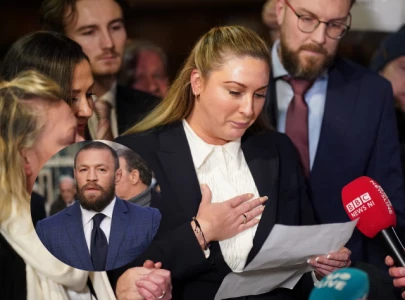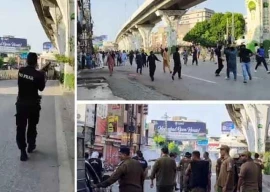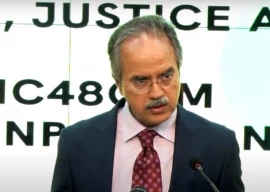
“I have come here to seek a new beginning between the United States and Muslim world, one based upon mutual respect; and one based upon the truth that America and Islam are not exclusive, and need not be in competition,” he told his large audience. “Instead they overlap, and share common principles of justice and progress; tolerance and dignity of all human beings. The people of the world can live together in peace. We know that is a God’s vision. Now that must be our work on Earth.”
President Obama thought that defining a new relationship between Islam and America was expected of him. He was a different kind of American president. “I’m a Christian, but my father came from a Kenyan family that includes generations of Muslims. As a boy I spent several years in Indonesia and heard the azan at the break of dawn and at the fall of dusk. As a young man, I worked in Chicago communities where many found dignity and peace in their Muslim faith.”
That speech was given two years ago. The American president could not have imagined how much would change in the Muslim world since the Cairo address. He must have hoped that democracy, liberty, freedom of expression, respect for the rule of law and rights of all citizens — ideas on which America had built its own society and its own political and social orders — would be adopted by those in the Muslim world where authoritarianism governed. That began to happen in ways that could not have been imagined in June 2009. One single and tragic act of defiance by a frustrated young fruit vendor in a small Tunisian town ignited the Arab world. The Arab street erupted and brought down two long-enduring regimes and threatened several others. The West, including America, surprised by these rapid moving events, stood by and watched as the Arab youth turned out in the streets and in public squares, no longer afraid that they will be mercilessly assaulted by the security forces. They brought down the presidents of Tunisia and Egypt. It was only when the Libyan regime threatened to massacre its own people that the West intervened.
The West began a military operation against the regime of Muammar Qaddafi in Libya that has lasted longer than expected. The Assad family that represents a small non-Sunni minority in a Sunni majority country launched a viscous campaign of repression to beat back those who wanted a more open political system. The opposite happened in Bahrain, where the Sunni establishment and monarch were challenged by the country’s large Shia majority. In Yemen, a society that was still governed by tribalism and tribal loyalties was set on fire, and it rages on even as the country’s long-serving president has gone to Saudi Arabia to recover from the injuries suffered during an attack on his compound by those who had rebelled against his rule. The Arab political revolution is actually work in progress.
There were other developments in the Muslim world. A political party inspired by Islam won the plurality of the vote in a general election and prolonged the rule of the country’s prime minister, Teyyip Erdogan. The Turks demonstrated that Islam was not incompatible with democracy. America and its Nato allies, fearing that they may get stuck in Afghanistan, began the search for a way out of that country that had defied so many other foreign interventions. The Americans found and killed Osama bin Laden in a city deep inside Pakistan’s territory, by carrying out an operation that was deeply resented by many in Pakistan, who considered it an act of aggression committed against a sovereign nation. After relations with Pakistan rapidly deteriorated, Washington indicated that it was holding back part of the aid it had promised the country’s military. A resolution was moved in Congress demanding a cut back in economic aid as well.
The Muslim world’s relations with America, therefore, were moving in directions that were not expected by the country’s new president. To use a favourite Obama expression, it is necessary for Washington to press the reset button. In doing so, it needs to cognise a few things. First, the world of Islam is not homogenous. The people living in these countries belong to many different cultures and have had different histories. They are making economic, political and social progress at different speeds.
Second, the political systems that are evolving in these countries will be different. This is not surprising since the Christian nations in Europe and America don’t have the same political structures. Third, the strategic interests of countries in the Muslim world will not always be the same as that of America and its European allies. To force countries to follow Washington, Berlin, London and Paris is to generate resentment which is not good for any country inside or outside the Muslim world. Let us take three examples.
A more confident Istanbul has begun to carve out a role for itself in the Middle East, Central and South Asia that may not be in line with what the Americans consider to be their interests. An economically weakened and politically unsettled Islamabad is rightly nervous about what might emerge in its neighbourhood after the United States begins to pull out of Afghanistan. Tehran feels anxious because of the fact that it is the only major Shia country in the middle of a Sunni world. It may be inclined to give up its nuclear ambitions if it feels comfortable about its security situation.
In other words, in resetting the button, President Obama needs to move forward from rhetoric to real politics.
Published in The Express Tribune, August 1st, 2011.
COMMENTS (3)
Comments are moderated and generally will be posted if they are on-topic and not abusive.
For more information, please see our Comments FAQ

















Obama is given to drama. His Cairo address may have cooled the nerves of the Muslim world. Obama's Cairo rhetoric was puerile and no sane political observer would have expected any policy shift of America.
The author is right in pointing out that the Muslim world has undergone a sea change since Obama's address. The change is for worst proving Obama's Cairo address to be a Cairo blabber. It should have humbled Obama to know that the world events do not unfold as per the dictates or even anticipations of Washington but has a momentum of its own.
With due deference to the author I would like to differ on his perceptions of the developments in the Muslim 'Ummah'.
Turkey and Malaysia have not set any trend in the Muslim world. In fact Pakistanization of Turkey, Malaysia, Indonesia and Bangladesh are in a nascent state. The Muslim world may not be homogeneous in appearance but is monolithic in its violence. The redemption of the Muslim world lies not in Islam(whichever way you may choose to define it) but in the unusual act of the Tunisian youth's self immolation which the author chooses to term it as 'defiance' instead of passive resistance. The power of passive resistance is far superior to the power of Jihad.
Seems like enlightened authors like Burki will always expect American shoulders to lean on or to get help. With the amassed oil wealth stinking to the core, what about the so called "Muslim Ummah" try to stand up on its own legs. esp the Arab lands stretching from Syria to pakistan, Malaysia has shown the way, Turkey is showing the way. Why should Obama do something always? Cant u see what people like Erdogan has done in Turkey , getting the army under the civvies for a start. When will the ruling mobs of all these muslim countries listen to their own population, Dont expect any hearing aids for that from any one for those can be pulled out any time.
Burki has been over-generous in showering advice on Mr. Obama. Something must also be said about what the leaders of the Islamic world ought to do in helping reset the relationship. What can Obama do about Tehran feeling "anxious because of the fact that it is the only major Shia country in the middle of a Sunni world?" Don't you think that the Ummah should take note that Iran "may be inclined to give up its nuclear ambitions if it feels comfortable about its security situation?"